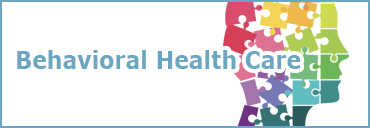Share

The field of behavioral health has expanded the focus beyond illness and suffering, and is directing more attention to positivity and well-being. Positive psychology has developed interventions to help individuals decrease negative emotions and increase positive emotions, enhance relationships, engage in meaningful activities and work, and build upon personal strengths (Fredrickson, 2009; Peterson, 2006; Seligman, 2012). Positive psychiatry is also focusing on ways to enhance well-being, increase positive emotions, and improve psychological strengths in addition to treating mental illness and reducing suffering (Jeste & Palmer, 2015). There is a growing body of research, clinical, recovery, and self-improvement literature on altruism, compassion, empathy, forgiveness, gratitude, happiness, love, mindfulness, posttraumatic growth, and resilience. This includes tools for professionals that can be used in work with individuals who have psychiatric or addictive disorders.
This article focuses on gratitude. I chose this topic as a result of recent experiences that were meaningful and powerful for me, for which I am grateful. The first was attending and speaking at a graduation event by Gaudenzia, a large addiction treatment system. Individuals at this event had sustained at least one year of continuous recovery, and all were integrated back with their families and communities. During the celebration, recovering individuals briefly made statements, most of which included an expression of genuine gratitude to their families, friends, counselors, treatment programs, and God. It rekindled in me my deep gratitude towards colleagues working in the trenches, helping people with severe addictions reclaim their lives, and in many instances helping families heal. I can attest, from decades of providing direct care, that working with addicted individuals and families is demanding, challenging, and humbling work that is reinforced when we see them engage in recovery and make positive self and lifestyle changes. I could see the pride of Gaudenzia staff watching clients receive a personal medallion and certificate commemorating their achievement in sustaining recovery. I could also sense their love and admiration for how these people worked hard to sustain recovery. Family members and friends were grateful to share this event and have their loved ones in recovery back in their lives.
Another experience that triggered deep appreciation and gratitude was spending several days at Faces and Voices of Recovery (FAVOR) in Greenville, South Carolina. FAVOR is an advocacy group that helps individuals and families affected by addiction. FAVOR Greenville operates a recovery center that is a safe place for individuals and family members to learn about addiction and recovery, engage in recovery groups, or meet for individual sessions with a recovery coach or family coach. All coaches are paid professionals or volunteers in long-term recovery who provide face-to-face services on-site or in the community, or by telephone and text messaging. These coaches help individuals find and engage in treatment if needed, and engage in recovery programs at the center and community. I met with recovery coaches individually and in groups, and attended several types of recovery groups for addicted individuals and for families.
Individuals engaging in FAVOR services were grateful for the acceptance, love, compassion, and caring received from staff. Staff were grateful for their own long-term recoveries and all the people who helped them, and for having the opportunity to give back to others suffering from addiction or living with addicted loved ones. One staff member saw three addicted individuals in a local hospital emergency department between 9 PM and 3 AM, yet showed up for work at the center the next day. Although he was helping others, he was grateful for this opportunity and to be part of a center that reaches so many people in need of help. Another staff member talked about her work with families, and invited me to a family support group. What I experienced at meetings with staff and attending recovery meetings was people doing whatever it took to help other people or family members engage in treatment, recovery, or both. And, just as important, was seeing how amily members or individuals with addiction felt and expressed their appreciation and gratitude for the acceptance, help, and support they received.
Types of Gratitude
Gratitude has to do with kindness, generosity, gifts, and the beauty of giving and receiving. Emmons defines gratitude as being thankful for, having readiness to show appreciation for, and returning the kindness received from others (2007, 2013). This kindness results from receiving gifts from other people, or for the exhibited behaviors of others that benefitted us.
There are two types of gratitude: personal and transpersonal. Personal gratitude is feeling grateful towards people as the result of a gift they provided to us, a helpful behavior they showed us, or a skill they taught us. Or, this can be feeling grateful for specific people being a part of our lives, such as appreciation for family members, friends, mentors, sponsors, or peers in recovery. We may feel grateful for:
- Help with an addiction, mental health issue, or other problem
- Help making an important decision
- Help with a particular task
- Love, emotional support, mentoring from another
- Spiritual, academic, or career guidance
- Having a physical, psychological, or creative ability
- Having a passion about something in life
- Learning or improving skills
- Financial assistance or guidance
- Something personal of value mainly to those receiving the gift, such as a photo, an object of personal beauty, a personal note or letter, an opportunity for an experience (e.g., an event, travel, meeting someone of significance)
When we experience gratitude toward other people, we are more likely to do something for them that they may appreciate or feel grateful about. When my wife died of cancer more than thirteen years ago, several friends showed incredible kindness, love, and support during this difficult time in my life. In addition to the deep gratitude I felt towards them, I connected with other friends or colleagues who lost loved ones as a way of giving back what was given to me. The emotional and practical gifts given to me during my bereavement were ones I later shared with others experiencing grief.
Transpersonal gratitude is feeling grateful to God or another higher power. Many people in recovery express this type of gratitude at recovery meetings or group treatment sessions.
Gratitude can also be felt as a result of beauty experienced in nature such as a sunrise; a sunset; a snowstorm; a beautiful mountain, river, or lake; an animal or insect; or other things of beauty. On a recent day in early summer I watched a spectacular sunrise through the trees in my backyard.
Benefits of Gratitude
Research has identified an impressive list of potential benefits of experiencing and expressing gratitude (Emmons, 2013; Lyubomirsky, 2014):
Improved Emotional or Psychological Health
This involves feeling less anxiety, depression, stress, envy, or resentment, and feeling more optimism, joy, happiness, love, or enthusiasm. It is an increase in satisfaction with life.
Physical Health and Habits
This encapsulates feeling healthier with fewer physical symptoms; being less bothered by aches or pains; lowered blood pressure; better sleep; more energy; having a stronger immune system; exercising more; and generally taking better care of health. A study that followed nuns for over six decades found that longevity was higher among nuns with more positive expressions of gratitude, love, hope, and happiness.
Relationships
This includes feeling less lonely and isolated, being more outgoing, making more friends; being more helpful, altruistic, generous, empathic, and compassionate with others; having a stronger bond with friends or romantic partners; and being more likely to forgive other people.
Increasing Gratitude in Daily Life
The following are strategies that can help you increase gratitude in your life. The key is making gratitude expression a habit that you regularly practice so that you appreciate the gifts you have or receive in life, and express your gratefulness to others (Daley & Douaihy, 2010; Emmons, 2013).
Pay Attention to Gifts and/or Blessings You Receive
Be aware of and reflect on positive experiences, interactions, or blessings you receive. I save e-mails, written notes, and cards people send me in which they express gratitude for something I did for them or gave them.
Minimize or Stop Expressing Ingratitude
Try not to let negative thoughts or feelings get in the way of appreciating things for which you should feel grateful.
Catch Yourself When You Think Nongrateful Thoughts
Challenge any thoughts of ingratitude you have and replace them with more grateful thoughts.
Share Your Gratitude
Simple expressions of “Thank you” or “I appreciate” go a long way. Others will appreciate hearing these from you.
Do Not Take People in Your Life for Granted
Share your positive feelings of gratitude in what you say or what you do to people you care about. Even small gestures of gratitude can make an impact. There are endless ways to show your gratitude.
Show Gratitude in Your Behaviors
Send an e-mail or text, write a personal note, send a card, give a gift, or do something helpful, kind, or altruistic towards people to whom you feel grateful.
Write
Write in a gratitude journal about people, experiences, or gifts you appreciate or feel grateful about. Or, write a letter to someone towards whom you feel deep gratitude. You can keep this letter to yourself, send it, or read it to them.
Share Your Gratitude Letter
Some people find it meaningful to read or deliver their gratitude letter in person.
Express Your Gratitude through Spiritual Disciplines
Many religions and spiritual practices offer ways to express gratitude such as in prayer, confession, meditation, connecting with others as part of a spiritual fellowship, and being of service to others.
If You Are in Recovery, Give Back to Others
You can do this by serving as a sponsor, peer mentor, or support person in recovery.
Make a Habit to Reflect on Your Blessings
You can do this at the end of each day or week. You simply review the day or week and identify positive emotions, people, or experiences.
Feeling grateful and expressing gratitude can easily be incorporated into daily life. Many benefits come from focusing on people, experiences, gifts, or blessings we receive. The challenge is to be aware and not take others and our gifts for granted. Additionally, to go beyond feeling grateful we can share that feeling with others.
References
Daley, D. C., & Douaihy, D. (2010). Gratitude workbook. Murrysville, PA: Daley Publications.
Emmons, R. A. (2007). Thanks! How the new science of gratitude can make you happier. Boston, MA: Houghton-Mifflin.
Emmons, R. A. (2013). Gratitude works! A 21-day program for creating emotional prosperity. San Francisco, CA: Jossey-Bass.
Fredrickson, B. L. (2009). Positivity: Top-notch research reveals the upward spiral that will change your life. New York, NY: Harmony.
Jeste, D. V., & Palmer, B. W. (2015). Positive psychiatry: A clinical handbook. Washington, DC: American Psychiatric Publishing.
Lyubomirsky, S. (2014). The myths of happiness: What should make you happy but doesn’t, what shouldn’t make you happy, but does. New York, NY: Penguin Books.
Peterson, C. (2006). A primer on positive psychology. New York, NY: Oxford University Press.
Seligman, M. E. P. (2012). Flourish: A visionary new understanding of happiness and well-being. New York, NY: Simon & Schuster.









 Counselor Magazine is the official publication of the California Association of Addiction Programs and Professionals (CCAPP). Counselor offers online continuing education, article archives, subscription deals, and article submission guidelines. It has been serving the addiction field for more than thirty years.
Counselor Magazine is the official publication of the California Association of Addiction Programs and Professionals (CCAPP). Counselor offers online continuing education, article archives, subscription deals, and article submission guidelines. It has been serving the addiction field for more than thirty years.